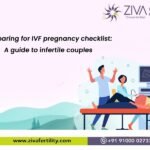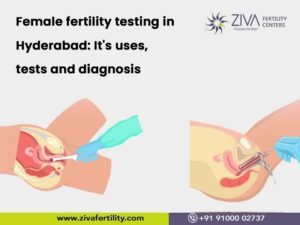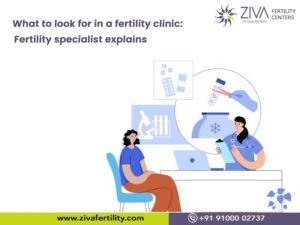Often, fertility is something people only think about when trying to raise a family actively, or in many cases, after experiencing problems conceiving. Many don’t know that couples between the ages of 29 and 33 with a normally functioning reproductive system only have a 20-25% chance of getting pregnant in any given month. If you add several infertility factors from both sexes, it can significantly reduce the chances.
Often, fertility is something people only think about when trying to raise a family actively, or in many cases, after experiencing problems conceiving. Many don’t know that couples between the ages of 29 and 33 with a normally functioning reproductive system only have a 20-25% chance of getting pregnant in any given month. If you add several infertility factors from both sexes, it can significantly reduce the chances.
It is common today for people to have signs and symptoms of infertility. However, you may also find many people who don’t show symptoms of infertility right away until they consider conception. Infertility can affect both men and women. This article will discuss the most common signs and symptoms of infertility and when to see a doctor, and when to have an infertility test in the Hyderabad
Ziva infertility clinic
if you are experiencing infertility.
If you think you might want children in the future, here are the warning signs of infertility that you should not ignore:
If you think you might want children in the future, here are the warning signs of infertility that you should not ignore:
For women:
For women:
Menstrual cycle changes: This could be a lack of menstruation, heavier than usual menstrual cycles, or irregular menstrual cycles can be a sign of infertility. Consider tracking your menstrual cycle for patterns or changes at first. It is also helpful if you have ever sought medical advice to ask about your medical history.
Menstrual cycle changes:
This could be a lack of menstruation, heavier than usual menstrual cycles, or irregular menstrual cycles can be a sign of infertility. Consider tracking your menstrual cycle for patterns or changes at first. It is also helpful if you have ever sought medical advice to ask about your medical history.
Heavy, long time and painful periods:
Ziva infertility clinic.
Undoubtedly, this is a dangerous cause of infertility. Some other symptoms of endometriosis include chronic abdominal pain, backache, fatigue, irregular periods, and more.


No periods: It’s not uncommon for women to get a month of no periods here and there. Factors such as stress or strenuous exercise can cause your period to stop temporarily. But if you haven’t had your period for months, it’s time to get your fertility checked.
No periods:
It’s not uncommon for women to get a month of no periods here and there. Factors such as stress or strenuous exercise can cause your period to stop temporarily. But if you haven’t had your period for months, it’s time to get your fertility checked.
Symptoms of hormonal fluctuations: Signs of hormonal fluctuations in women can indicate possible fertility problems, as listed below:-
Symptoms of hormonal fluctuations:
Signs of hormonal fluctuations in women can indicate possible fertility problems, as listed below:-
- Skin problems
- Decreased sexual desire
- Facial hair
- Thinning hair
- Weight gain
Skin problems
Decreased sexual desire
Facial hair
Thinning hair
Weight gain
Sudden severe acne:
Significant hair growth (or hair loss): Polycystic Ovary Syndrome causes tiny cysts to form on the outside of the ovaries and also causes the body to overproduce male hormones. If you notice your hair growing in unusual places like your face, arms, chest, or back, it could be a warning sign. On the other hand, hair loss can signify other conditions related to infertility, such as thyroid problems, anaemia, or autoimmune diseases.
Significant hair growth (or hair loss):
Polycystic Ovary Syndrome causes tiny cysts to form on the outside of the ovaries and also causes the body to overproduce male hormones. If you notice your hair growing in unusual places like your face, arms, chest, or back, it could be a warning sign. On the other hand, hair loss can signify other conditions related to infertility, such as thyroid problems, anaemia, or autoimmune diseases.
Sudden unexplained weight gain: Another sign of PCOS is sudden unexplained weight gain if no other diet or activity level changes have occurred. Keep in mind that it plays a vital role in infertility, even when conditions like PCOS are not present. Being overweight or underweight at the same time can make it difficult to conceive.
Sudden unexplained weight gain:
Another sign of PCOS is sudden unexplained weight gain if no other diet or activity level changes have occurred. Keep in mind that it plays a vital role in infertility, even when conditions like PCOS are not present. Being overweight or underweight at the same time can make it difficult to conceive.
Pain during sex:
No pregnancy: This is another common sign of infertility. Many people have trouble getting pregnant even after trying for a while. Generally, doctors will diagnose infertility if the woman fails to conceive even after one year of experience. For example, if the woman is 35 years old, she will be diagnosed with infertility if she is not pregnant after six months of trying. In that case, get an infertility test in the Ziva infertility clinic.
No pregnancy
: This is another common sign of infertility. Many people have trouble getting pregnant even after trying for a while. Generally, doctors will diagnose infertility if the woman fails to conceive even after one year of experience. For example, if the woman is 35 years old, she will be diagnosed with infertility if she is not pregnant after six months of trying. In that case, get an infertility test in
the Ziva infertility clinic
.
Obesity: A recent study shows that obesity also affects reproductive health. Women who are overweight have a lower chance of getting pregnant, and they are also at a higher risk of problems during pregnancy than people who don’t have weight problems.
Obesity:
A recent study shows that obesity also affects reproductive health. Women who are overweight have a lower chance of getting pregnant, and they are also at a higher risk of problems during pregnancy than people who don’t have weight problems.
It’s all about the most common signs and symptoms of infertility. Some other signs of infertility include discharge from the nipples, facial hair in women, thinning of the hair on the top of the head, low sexual desire, and more. If you experience these symptoms, see a doctor at Ziva infertility clinic for further treatment.
It’s all about the most common signs and symptoms of infertility. Some other signs of infertility include discharge from the nipples, facial hair in women, thinning of the hair on the top of the head, low sexual desire, and more. If you experience these symptoms, see a doctor at
Ziva infertility clinic
for further treatment.
For men
For men
Testicular pain or swelling: Common causes of testicular swelling can be testicular torsion, infection, or even a hernia. Although pain or swelling in this area does not necessarily mean infertility, it is always a reason to see a doctor.
Testicular pain or swelling:
Common causes of testicular swelling can be testicular torsion, infection, or even a hernia. Although pain or swelling in this area does not necessarily mean infertility, it is always a reason to see a doctor.
Changes in Sexual Desire:
Erectile dysfunction: Erectile dysfunction, also linked to hormonal imbalance, occurs in almost a quarter of couples struggling with infertility. This can be caused by an injury, a medical condition, the use of prescription or recreational drugs, or even psychological factors such as depression, anxiety, or stress.
Erectile dysfunction:
Erectile dysfunction, also linked to hormonal imbalance, occurs in almost a quarter of couples struggling with infertility. This can be caused by an injury, a medical condition, the use of prescription or recreational drugs, or even psychological factors such as depression, anxiety, or stress.
Pain or swelling in the testicles: Several conditions can cause pain or swelling in the testicles, many of which can cause infertility.
Pain or swelling in the testicles:
Several conditions can cause pain or swelling in the testicles, many of which can cause infertility.
Ejaculation problems:
Testicles are small and hard: Male sperm are located in the testes, so testicular health is significant for male fertility. Small or hard testicles can indicate a potential problem that needs to be investigated by a doctor.
Testicles are small and hard:
Male sperm are located in the testes, so testicular health is significant for male fertility. Small or hard testicles can indicate a potential problem that needs to be investigated by a doctor.
For both
For both
Other warning signs that can affect both sexes include a history of cancer or chronic disease, a history of sexually transmitted disease or disease, poor lifestyle habits such as smoking, excessive drinking, and exposure to toxic chemicals in the workplace.
Other warning signs that can affect both sexes include a history of cancer or chronic disease, a history of sexually transmitted disease or disease, poor lifestyle habits such as smoking, excessive drinking, and exposure to toxic chemicals in the workplace.
About 15 to 20 per cent of couples trying to conceive have infertility problems. Female factor infertility is usually the cause 40% of the time, while male factor is the cause of the problem 30 to 40% of the time. The combination of these factors causes infertility in 20 to 30 per cent of cases.
About 15 to 20 per cent of couples trying to conceive have infertility problems. Female factor infertility is usually the cause 40% of the time, while male factor is the cause of the problem 30 to 40% of the time. The combination of these factors causes infertility in 20 to 30 per cent of cases.
Ziva infertility clinic
doctor and review your concerns. Even if you are diagnosed with infertility, you can still get pregnant. If you experience these symptoms or have reproductive health problems, contact +91-9392834024, +91-9100002737 at the Ziva
infertility clinic
to learn more.
coque de telephone avec cordonelf bar bitti臒i nas谋l anla艧谋l谋ramazon phone casesher response
















